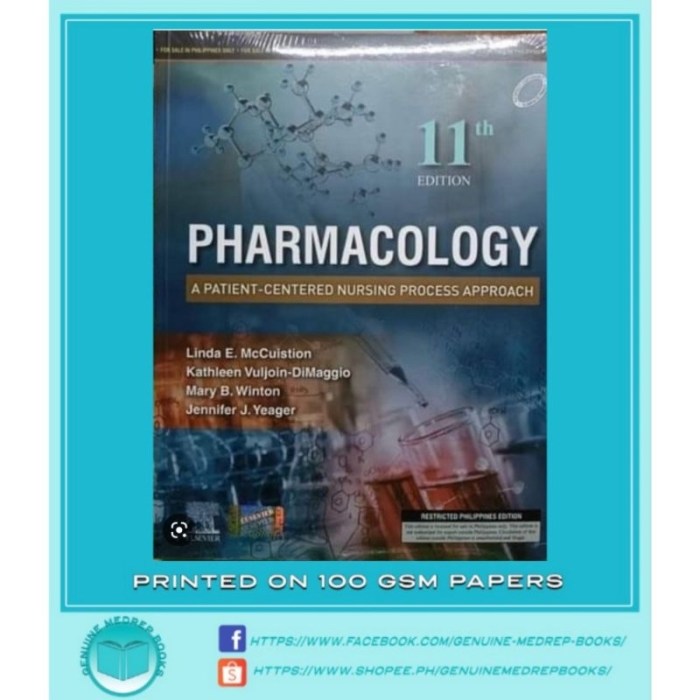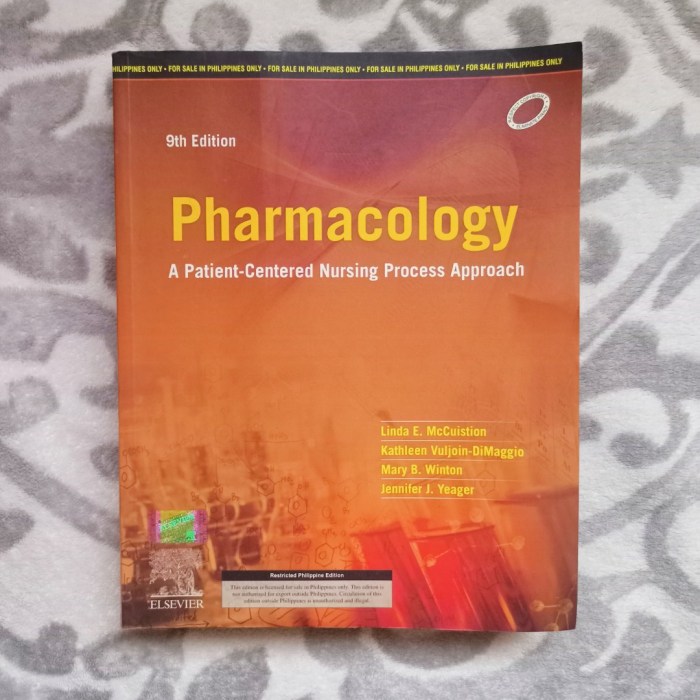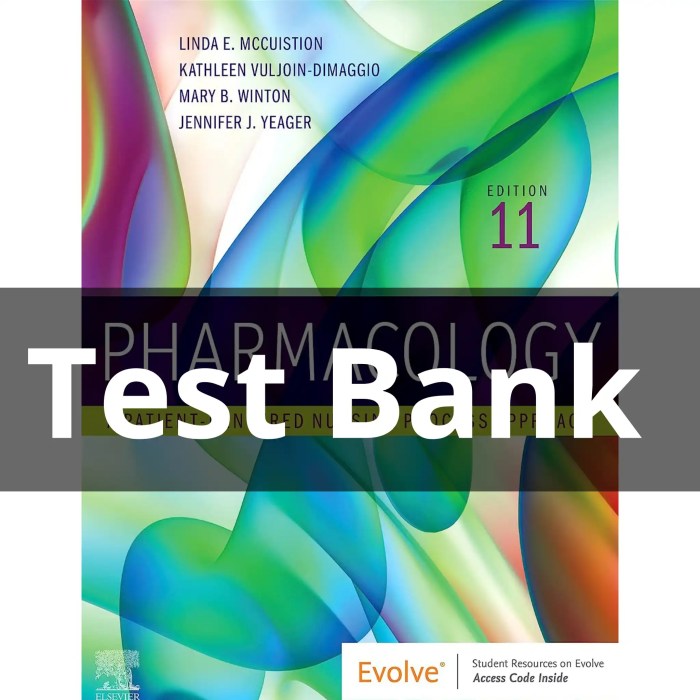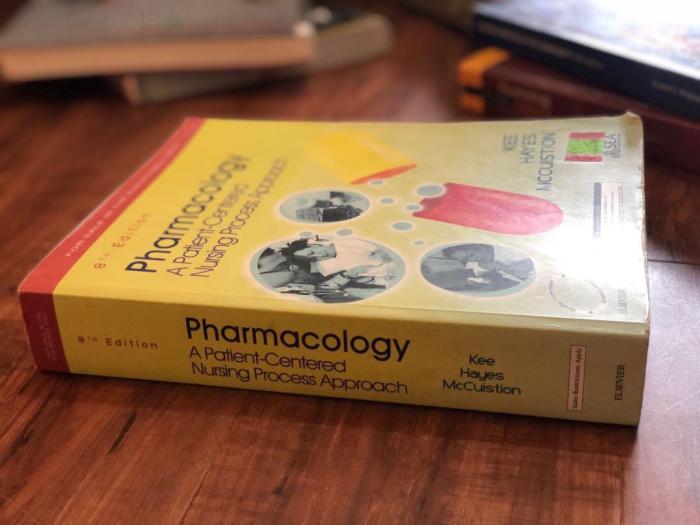Embark on a journey through pharmacology a patient-centered nursing process approach 11th edition pdf, where the intricacies of medication management and patient care converge. This comprehensive guide unveils the fundamental principles of pharmacology, empowering nurses with the knowledge and skills to provide optimal medication therapy for their patients.
Through a patient-centered lens, this 11th edition delves into the complexities of drug administration, monitoring, and classification, equipping nurses to navigate the ever-evolving landscape of pharmacology with confidence and expertise.
1. Introduction to Pharmacology

Pharmacology is the study of the effects of drugs on living organisms. It is a multidisciplinary field that draws on chemistry, biology, physiology, and other sciences to understand how drugs work and how they can be used to treat diseases.
Pharmacology is a rapidly growing field, and new drugs are being developed all the time. As a result, it is important for nurses to have a strong understanding of pharmacology so that they can safely and effectively administer medications to their patients.
Historical Development of Pharmacology
The history of pharmacology dates back to ancient times. The first known drugs were plants and herbs that were used to treat a variety of illnesses.
In the Middle Ages, alchemy was the main form of pharmacology. Alchemists sought to turn base metals into gold, but they also made some important discoveries about the medicinal properties of various substances.
The modern era of pharmacology began in the 19th century with the development of synthetic drugs. The first synthetic drug was aspirin, which was developed in 1897.
Principles of Pharmacokinetics and Pharmacodynamics, Pharmacology a patient-centered nursing process approach 11th edition pdf
Pharmacokinetics is the study of how drugs are absorbed, distributed, metabolized, and excreted by the body.
Pharmacodynamics is the study of how drugs interact with the body to produce their effects.
Understanding pharmacokinetics and pharmacodynamics is essential for nurses because it allows them to predict how a drug will behave in the body and how it will affect the patient.
FAQ Resource: Pharmacology A Patient-centered Nursing Process Approach 11th Edition Pdf
What is the significance of pharmacology in nursing?
Pharmacology plays a crucial role in nursing, providing nurses with the knowledge and skills to safely and effectively administer medications, monitor patient responses, and identify potential drug interactions and adverse effects.
How does this 11th edition differ from previous editions?
The 11th edition of pharmacology a patient-centered nursing process approach incorporates the latest advancements in pharmacology, including new drug therapies, revised dosing guidelines, and updated safety information. It also places a stronger emphasis on patient-centered care and the nurse’s role in medication adherence.
What are the key benefits of using this book as a nursing resource?
This book offers several key benefits for nurses, including comprehensive coverage of pharmacology principles, practical guidance on medication administration and monitoring, and case studies that illustrate real-world applications of pharmacology in nursing practice.


